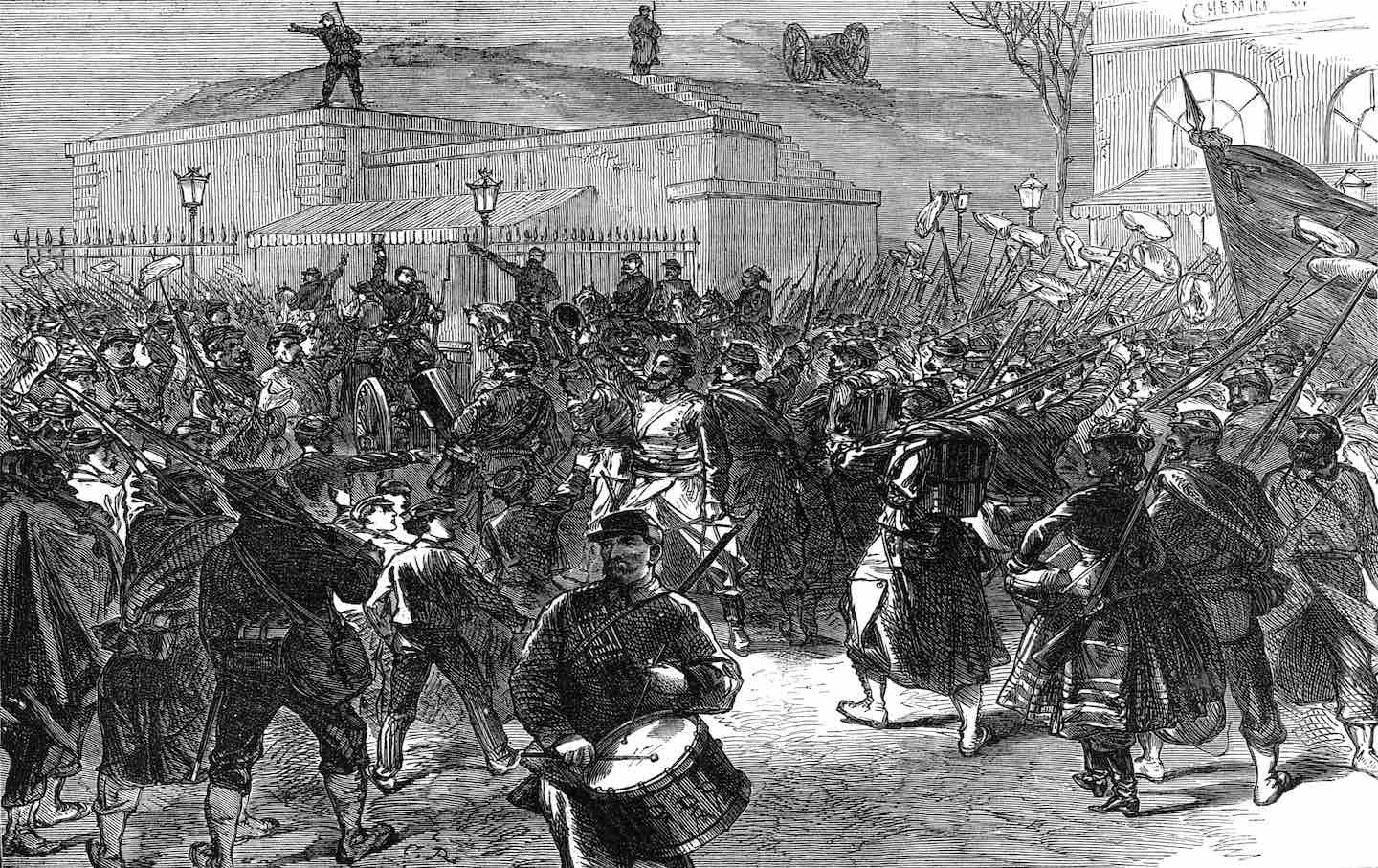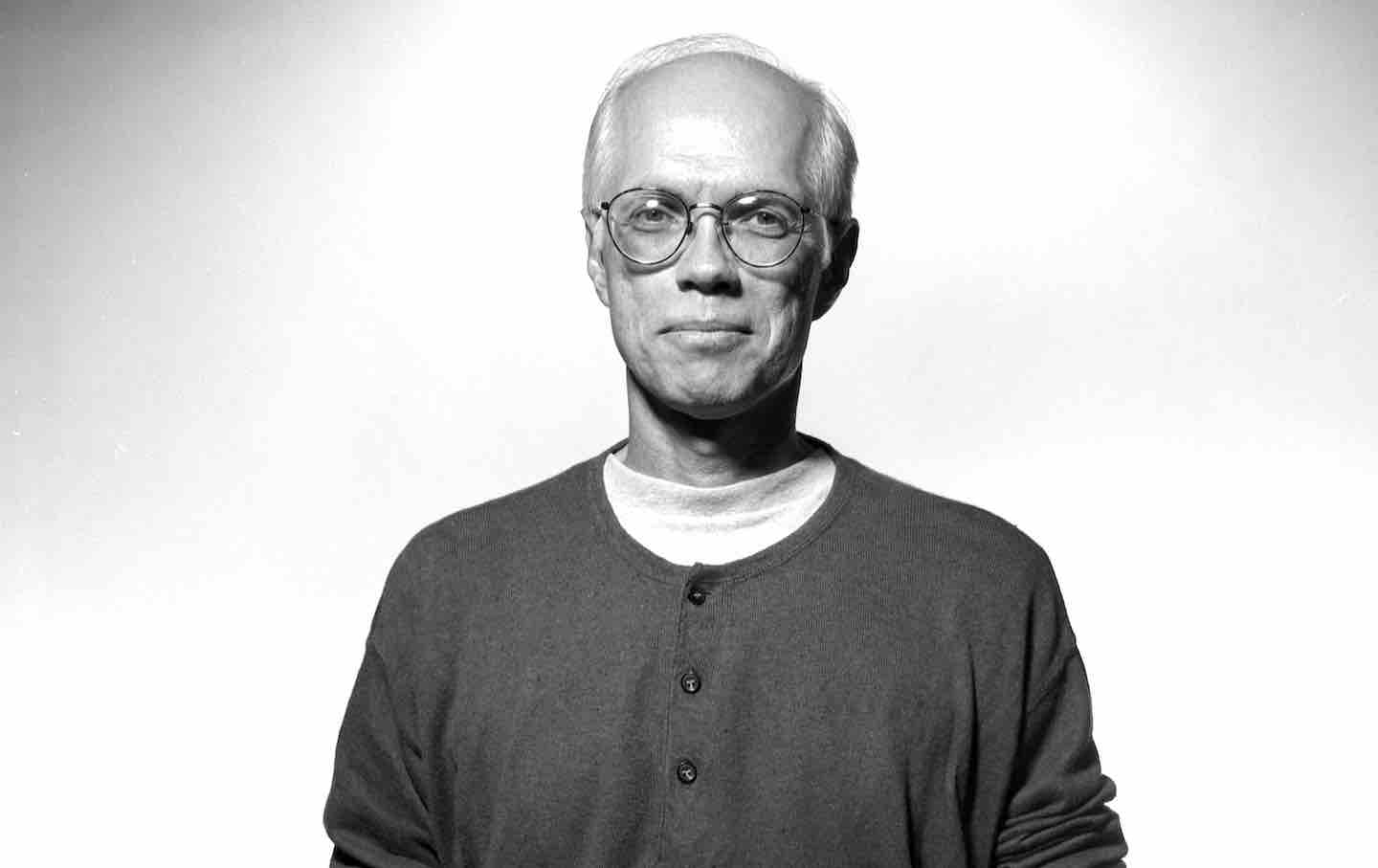A bowdlerized biopic of Bruce Springsteen, starring Jeremy Allen White, flattens a musician whose politics and identity are much more complicated.
Jeremy Allen White in Springsteen: Deliver Me From Nowhere.
(Courtesy of Macall Polay / 20th Century Studios)
Straight as he may be, Bruce Springsteen has always spoken to my queerness. There’s something about the alienation and longing in his music—the sense of isolation coupled with unfulfilled desire that one can’t ignore—that resonates with my experience of growing up queer in the United States. Judging by the proliferation of essays, zines, and podcasts exploring this element of Springsteen’s work, some people seem to share this interpretation. Others understandably chafe at the idea of heaping so much queer attention on a straight man when we have plenty of laudable icons within our own community. But whether he was ever a queer icon or not, one thing is clear: There’s nothing queer left about the Boss in Deliver Me From Nowhere, or arguably, much that’s substantive about him at all. In Scott Cooper’s new biopic we see a version of Bruce Springsteen that’s been stripped of all the complexity, contradictions, and political substance that made his work enduring in the first place.
At the beginning of Deliver Me From Nowhere, the year is 1981 and Bruce Springsteen (played by Jeremy Allen White) has just completed his international blockbuster tour for The River. He’s at loose ends, uncomfortable with his fame and the accompanying pressure to produce radio hits. He moves into a furnished rental in Colts Neck, New Jersey, with a moody view of a tree-lined reservoir off the back porch, and purchases the first new car of his life. (“I know who you are,” the salesman tells him, leaning in the window of the Camaro he’s about to drive off the lot. “That makes one of us,” he replies.) He takes up with a single mom, Faye (Odessa Young), whom we might generously describe as a composite of the real women Springsteen dated at the time or, probably more accurately, an entirely fictional character who serves as a convenient canvas on which to sketch his issues with intimacy.
Deliver Me From Nowhere tells the story of the making of Nebraska, the critically acclaimed 1982 acoustic album that Springsteen recorded on a four-track machine in the bedroom of the Colts Neck house. In between shots of Bruce playing guitar on the couch late at night and tossing Faye’s daughter into the air on the Asbury Park boardwalk, we get black-and-white flashbacks to his childhood, vacillating between the abuse of his father and the steadfast love of his mother. The barely hidden subtext is all too obvious; it is this childhood that both inspires the lyrics we see him scribbling in his notebook and prevents him from moving forward with the beautiful, kind woman who just wants to love him. In a scene at the diner where Faye works, she confronts him about his fear of commitment while he stares back at her across the table, clearly lovesick but unable to open up. If it all sounds familiar, it’s because it is: We’ve seen this movie before, about the brilliant but broken man whose trauma both fuels his artistic output (and, let’s be honest, his sex appeal) and emotionally stunts him.
It’s not that this narrative is an inaccurate part of Springsteen’s story: He has talked openly, in his 2016 memoir Born to Run and across dozens of albums, about the influence that his troubled relationship with his father had on him both as an artist and a person. But what Deliver Me From Nowhere somewhat shockingly erases is the substance of Springsteen’s actual music, including, most sharply, his reflections on American economic inequality and its impact on families. Nebraska, around which the film ostensibly centers, is a collection of stories about working people. What all of these people have in common—from the child narrator in “Mansion on a Hill,” who grows up looking longingly at a big house “above the factories and the fields,” to Ralph in “Johnny 99,” who ends up in dire straits after the auto plant where he works shuts down—is that they find themselves contending with the stark contrast between the American dream and American reality. Crucially, Springsteen’s relationship with his father is given economic context; his dad appears throughout the album as a hard-working but distant man who can’t afford a new car for his family. One of the notable qualities of Nebraska is that it’s about an economic world that Springsteen grew up in but that, by the time he recorded the album, he had already left behind. This tension, and Springsteen’s ambivalence about it, is a theme across his music.
But you wouldn’t know any of this from watching Deliver Me From Nowhere. Politics are virtually absent from the film; even “Born in the USA”—Springsteen’s anthem about a Vietnam veteran who risks his life for his country only to encounter neglect and dismissal when he returns home—manages to get significant screentime without a single mention of the Vietnam War. It might be the most impressive depoliticization of Springsteen since 1984, when Ronald Reagan told a New Jersey crowd that his reelection campaign was rooted in the same “message of hope in songs of a man so many young Americans admire…Bruce Springsteen.” The Boss responded a few days later from the concert stage: “The president was mentioning my name the other day and I kinda got to wondering what his favorite album musta been. I don’t think it was the Nebraska album. I don’t think he’s been listening to this one.” One wonders whether Cooper was, either.
What fills the vacuum left by this omission is what we might describe as a generic portrayal of Bruce as a conflicted everyman and… a two-hour movie about the making of a record. It’s telling that the film’s most dramatic montages include shots of vinyl spinning and engineers celebrating wordlessly in the studio, having finally nailed the cut. The story of Nebraska is indeed an interesting one: Springsteen recorded the album in his bedroom and then, unable to reproduce the same raw, authentic feeling in the studio, eventually remastered the bedroom tape and released it as-is. I love the album that is the fruit of that labor; biopic material, it is not.
The filmmakers make a valiant effort to dramatize: We see Bruce at the library, looking at microfilm and learning about Charles Starkweather, whose crime spree in the late 1950s inspired the title track. We see him sitting on his back porch, the lyrics to “I’m On Fire” suddenly emerging from his lips as he fiddles on his guitar. We see him flipping through a Flannery O’Connor book late at night—a canned reference to the author’s influence on Nebraska. And we get many, many close-ups of song lyrics in his notebook.
It’s not Scott Cooper’s fault that writing and recording a rock album is not the stuff great movies are made of. It’s difficult to create a compelling plot that can hold an audience’s attention when the primary action consists of repeated takes in a recording studio. The inclination is understandable—when an artist is still alive and creating work, a biopic’s frame has to be more narrow than an entire life, and an album offers a natural container. But for a film to have any depth, it likely has to venture out of the studio—and beyond, too, the surface-level relationships that serve as window-dressings. And in the case of Springsteen, there’s no shortage of material to choose from. Over the course of a 60-year career, Springsteen has talked extensively about his lifelong battle with depression, his struggle to live up to the narrow confines of the masculinity he was raised with, and, to quote “Born in the USA,” his critique of a country that leaves working people feeling “like a dog that’s been beat too much / ’til you spend half your life just covering up.”
None of these themes get more than a brief mention in Deliver Me to Nowhere. Cooper makes an attempt to gesture at Springsteen’s mental health struggles, but these nods are so cursory that the only purpose they serve seems to be acknowledgement—and I wonder how legible they are to audiences who don’t already know Springsteen’s biography. The film is most successful in exploring his relationship with his father, but it’s a flattened, one-note portrayal—Doug Springsteen mostly appears on-screen as a violent brute with beer bottle in hand or, later on, a sad, mostly mute older man. A scene in which Bruce tells his dad that he never sat on his lap as a child is moving; it’s a window into what the movie could have been.
Ifound myself thinking wistfully during Deliver Me From Nowhere about my favorite Bruce Springsteen track. It’s the 11-minute live version of “The River” that he recorded on tour in Los Angeles in 1985. It begins with one of the Boss’s trademark stories—the ones he tells between songs as though they were off-the-cuff thoughts just coming to him, when in fact they’re carefully composed tales that are closer to prose poems. This one is about his dad, and in it, he recounts a series of painful moments: his father bringing a barber into the hospital to cut off all his hair while he’s laid up from a motorcycle accident, his father berating him in the kitchen night after night. The story ends with a moment of reconciliation in which his dad is transformed, however temporarily, from an angry bully to a parent whose greatest concern is his son’s well-being. It’s a nuanced narrative that reflects Springsteen’s skills as a storyteller. As he finishes talking and the first notes of “The River” begin, we are under no illusion that Doug Springsteen has suddenly become less flawed; but we are reminded that even, and perhaps especially, flawed parents do love their children.
This recording was made within a year or two of where the movie ends—after the completion of Nebraska and right as Springsteen resumes touring. The real-life Springsteen on this track is reflective: “He’d be waiting for me in the kitchen,” he tells us of his fights with his dad. “The first thing he’d always ask me was, what did I think I was doing with myself? And the worst part about it was I could never explain it to him.” He’s thinking about the expectations around masculinity that have strained their relationship: “I can’t wait ’til the Army gets you,” he remembers his father saying. “When the Army gets you, they’re gonna make a man out of you.” And of course, Vietnam, which is the main subject of the story, is on his mind: “A lot of guys went and a lot of guys didn’t come back. And the lot that came back weren’t the same anymore.” He’s a far cry, in other words, from the taciturn, apolitical Bruce of Deliver Me to Nowhere.
Which made me wonder if perhaps the film’s inability to plumb the depths of its protagonist’s inner life has less to do with the actual person it’s portraying and more to do with the era in which it is made. The last few years have seen a proliferation of discourse around a “male loneliness epidemic,” from studies on male friendship to books about “why the modern male is struggling…and what to do about it.” But Deliver Me From Nowhere is hampered by the same limitations as that conversation; absent any meaningful political analysis about which men are lonely and what society and its structures (race, capitalism, patriarchy) might have to do with it, we convince ourselves that the milquetoast answer “the men aren’t alright” is the only one.
Toward the end of the movie, Bruce—who we have a sense is feeling lost, but not a clear understanding of why—decides to move out to Los Angeles for a fresh start. His best friend, Matt (Harrison Sloan Gilbertson), drives him across the country and drops him off at the empty Hollywood Hills cottage he has just purchased. Bruce’s depression is palpable as the two men prepare to say goodbye. “You know I’m just a phone call away,” Matt tells him. Bruce nods dismissively and says, “Yeah, I know.” Matt starts to say something else, but stops himself. That’s all we—Bruce, and the audience—get.
More from The Nation

Kate Folks’s Sky Daddy pokes fun at the need for love at the core of most fiction—dramatizing one woman’s quest for romance through her very literal lust for airplanes.

A conversation with the writer and theorist Jasper Bernes about the left after the summer of 2020 and the state of revolutionary politics.

Pink Dust, a collection about aging and death, offers an optimistic vision of life as a continual act of reading.










